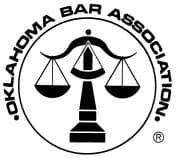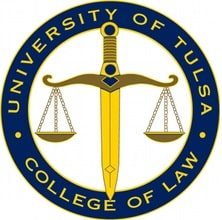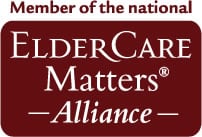Frequently Asked Questions
Question
Answer
If a person dies without making a Last Will & Testament, they die intestate. Without a Will, a decedent’s property will pass according to the State of Oklahoma Intestate Succession Laws O.S. 84§211-277.
If you are thinking that “intestacy” sounds like some sort of sickness, you may not be too far off the mark. When you see how the state distributes the funds of those who die intestate… it may make you feel a little sick.
Typically, when most people plan out their estate, they want all of their assets to go to the surviving spouse and not to their children. The thought is that the surviving spouse is in the best position to use the assets wisely for the benefit of the children.
Question
What is a Revocable Living Trust?
Answer
The Trust is primarily designed to be a probate avoidance document that provides for continuing lifetime management of your Trust assets and thereafter, upon your death, distribution to the beneficiaries named in the Trust document. There is typically no court involvement and, upon your death and after payment of just debts and any taxes, the Trustee simply distributes the remaining assets to (or continues to manage for) the beneficiaries without court supervision. If you become incapacitated during your lifetime, the Trustee is authorized to manage assets for your benefit without supervision of the court (as would normally be the case under a guardianship of property). The Trust will only deal with those assets that have been “funded” into it during your lifetime, paid to it directly (such as life insurance or retirement plan benefits), or received via the probate of the Pourover Will. The Trust can be amended or revoked at any time during your lifetime as long as you are mentally competent.
Question
What is an Irrevocable Trust?
Answer
An irrevocable trust is a trust that can’t be modified or terminated without the permission of the beneficiary. The grantor, having transferred assets into the Trust, effectively removes all of his rights of ownership to the assets and the Trust. The main reason for setting up an Irrevocable Trust is for estate and tax considerations. The benefit of this type of Trust for estate assets is that it removes all incidents of ownership, effectively removing the Trust’s assets from the grantor’s taxable estate. The grantor is also relieved of the tax liability on the income generated by the assets. While the tax rules will vary between jurisdictions, in most cases, the grantor can’t receive these benefits if he is the trustee of the Trust. The assets held in the Trust can include, but are not limited to, a business, investment assets, cash and life insurance policies.
Question
What is Adult Guardianship?
Answer
If a person (“Ward”) is incapacitated, incoherent or otherwise unable to make important financial and personal decisions for themselves, a court appoints someone called the Guardian to make those decisions for them. Decisions made by the Guardian have the legal backing of the court. The Guardian can be appointed to decide about the finances, medical and personal care, or both of the Ward.
Question
What is a Last Will and Testament?
Answer
A Last Will & Testament is a legal document that communicates a person’s final wishes, as pertaining to possessions and custody of dependents. This declaration names a Personal Representative (PR) to manage the estate and provides for the distribution of property at death. The PR is responsible for administering the estate and is supervised by the probate court to ensure that what is specified in the Will is carried out.
The Pourover Will is a supplemental instrument complimenting the Trust. As its name implies, the Pourover Will handles any property left out of the Trust as a result of oversight or neglect and “pours over”, thus passing assets into the Trust for ultimate distribution. In other words, the Trust is the beneficiary under the Will. Occasionally, the Will must be probated to handle missing assets or in the event an asset arises as a result of your death; for example, monetary damages paid as a result of your accidental death if caused by another person. If everything goes according to plan, the Pourover Last Will is never used.
Question
What is a Living Will (Advance Directive for Health Care)?
Answer
The Advance Directive for Health Care expresses your wishes regarding your health care in the event you are afflicted with an incurable disease, terminable health condition, or permanent and irreversible coma. Depending upon which separate provisions of the ADHC you have signed, those persons or institutions providing health care are authorized to withhold certain nutrients, water or other forms of life support for you in the event your death is imminent or you are in an irreversible coma. The ADHC allows you to not only specify your desires in the event of a terminal illness, but also in the event you are in a “persistent coma.” This part I of the document is called the “Living Will.” Part II allows you to name your “health care proxy,” or the person you want to make health decisions for you in the event you are no longer able to make such decisions for yourself.
Question
What is a Durable Power of Attorney?
Answer
The Durable Power of Attorney is an instrument designed to authorize another person (attorney in fact) to act on your behalf. The attorney in fact has those powers which you have granted in the document and under law. The document is called “durable” because the power does not cease if the principal becomes mentally incapacitated. The document authorizes the attorney in fact to make financial decisions for you (in the event you are unable to make those decisions) as long as you live or until you revoke and cancel the document. As long as you wish and are mentally competent, you retain all power to make your own decisions. The POA does not normally deal with a terminal illness or comatose conditions since such matters are normally dealt with via the use of the ADHC or POAHC.
Question
What is a Durable Power of Attorney for Health Care?
Answer
POAHC is designed to authorize another person to act on your behalf when you’re unable to make medical decisions for yourself. The POAHC names someone who “stands in your shoes” and tells the doctors what to do, or not do for you. Unlike the ADHC, which is limited to terminally ill patients, the POAHC applies whenever you’re unable to make medical decisions, such as when you’re temporarily incapacitated or seriously ill. The document authorizes the appointee to make medical decisions for you (in the event you are unable to make those decisions) as long as you live or until you revoke and cancel the document. As long as you wish and are mentally competent, you retain all power to make your own decisions.







